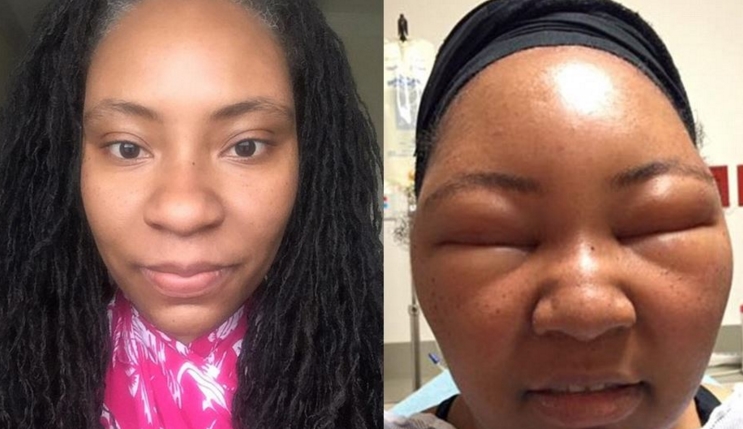Texas woman suffers allergic reaction to plant-based hair dye
03/24/2016 / By Julie Wilson

Several years ago, Chemese Armstrong, 34, from Abilene, Texas, learned that she was allergic to an industrial chemical commonly found in permanent hair dyes called paraphenylenediamine (PPD), used for the natural look it gives to colored hair.
Trying to avoid an allergic reaction, and at the behest of her dermatologist, Armstrong visited a salon in Austin that uses henna, a temporary, plant-based dye. She informed the stylist of her allergy to PPD, and just to be safe, they applied the dye to a small section of her hair, according to Fox News.
After waiting for 30 minutes and having no reaction, Armstrong gave her stylist the go-ahead to complete the look. The woman followed the stylists’ instructions to leave the dye on her hair for two hours before washing it out.
‘Natural’ hair dye contained harmful chemical
But by the time she had washed her hair and arrived at the gym, Armstrong began noticing an itchy sensation on her scalp. By the next morning, her entire face had swelled up like a balloon, with her eyes nearly swollen shut. Armstrong said she was in severe pain, with the swelling affecting both her face and scalp.
It turns out that the plant-based dye did in fact contain PPD. Armstrong reached out to the salon, but they had not responded by the time she posted a YouTube video about her experience on March 14. She chose not to reveal the name of the salon at this time.
“It just made me realize that I need to pay more attention to what I put in my body and what I put on my body,” said Armstrong in her YouTube video.
Though relatively rare (affecting about 1 in 250,000), hair dye allergies may pose some serious health risks, and you don’t have to be allergic to experience side effects, either.

Hair dyes and cancer
For quite awhile now, researchers have examined whether chemical-based hair dyes are linked to cancer, particularly cancer of the blood such as leukemias, lymphomas and bladder cancer.
Some studies have suggested a link, while others have not, reports the American Cancer Society (ACS). Hair dyes can be absorbed through the skin, as well as inhaled during application. Detecting adverse health effects caused by hair dye is difficult due to the thousands of chemicals used in different products, and also because those chemicals tend to rotate in and out of use.
Researchers believe those most at risk include people working with dyes on a daily basis, such as hair stylists and barbers. Studies involving humans found professionals routinely exposed to hair dye do have a “small but fairly consistent increased risk of bladder cancer,” according to the ACS.
But studies analyzing those who have their hair dyed did not.
As far as an increased risk for leukemias and lymphomas, the results are mixed, with some illustrating an increased risk of certain types of non-Hodgkin’s lymphoma in women who dye their hair.
But other studies found no such risk.
Studies that looked for a link between hair dye and breast cancer did not find an increased risk; however, it’s believed that too few studies have been completed, particularly on products used today, to reach a definitive result.
It’s important to understand that the Food and Drug Administration does not approve individual ingredients used in hair dyes, or many cosmetics for that matter.
One of the best ways to learn about a product or its ingredients is to plug it into the Environmental Working Group’s Skin Deep Database, which includes an online profile for cosmetics and personal care products that identifies ingredients and their level of toxicity.
If you type in “henna,” you get about 82 results showing different products containing that ingredient, all of which vary in their hazard rating, ranging from 1 (low) to 10 (high).
Sources:
Submit a correction >>
Tagged Under:
allergy, cancer, Hair dye, Henna, paraphenylenediamine, Texas, The Austin Sentinel
This article may contain statements that reflect the opinion of the author





















